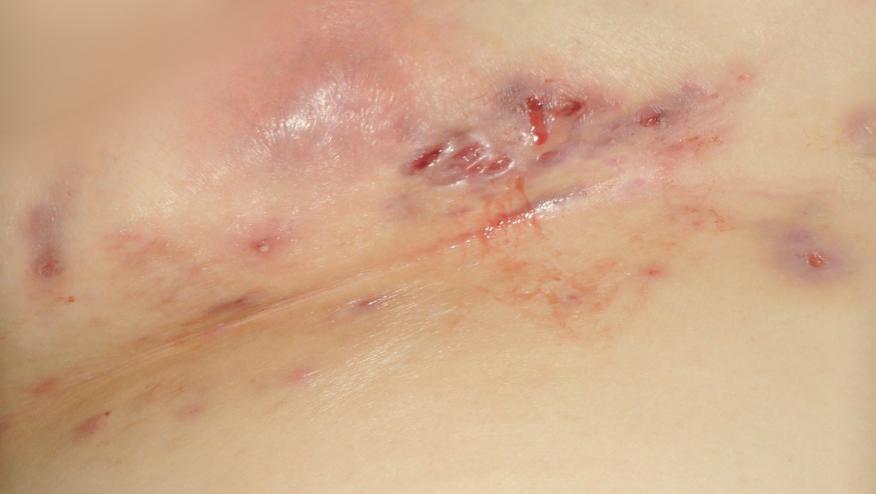ICYMI: Hidradenitis Suppurativa-Related Autoinflammatory Syndromes Save

Editor's note: This article originally appeared March 12, 2024, and is being shared again while RheumNow enjoys the July 4th holiday. Enjoy!
Hidradenitis suppurativa (HS) is a suppurative inflammatory skin disorder that is considered to be autoinflammatory by many. HS includes a specturm of disorders, linked by suppurative (or psoriatic) skin disease and potentially genetics. These HS-related disorders may include pyoderma gangrenosum (PG), acne and suppurative hidradenitis (PASH), Pyogenic Arthritis, Pyoderma gangrenosum and Acne (PAPA), pyogenic arthritis, PG, acne and suppurative hidradenitis (PAPASH), and Synovitis, Acne, Pustulosis, Hyperostosis and Osteitis (SAPHO), amongst others.
HS is an autoinflammatory skin disorder of the terminal hair follicle, manifesting with painful nodules, abscesses, draining tunnels, and hypertrophic scarring, typically occurring in apocrine gland bearing skin. Some HS patients present with specific immune-mediated autoinflammatory diseases that may be inherited, such as pyoderma gangrenosum, acne, and hidradenitis suppurativa (PASH).
PASH syndrome is a polygenic disorder with the manifest triad of PG, acne, and can be considered a prototype of HS-related autoinflammatory syndromes. Its first description dates back to 2011. But even after 10+ years of studies regarding PASH, a reliable genotype–phenotype correlation is still elusive.
Several alternative phenotypes have also been described, including PAPASH, PsAPASH, and PAC. These disorders are regarded as part of the same spectrum. Similarly SAPHO is an umbrella term with similar but different clinical phenotypes that may fall under either HS-related or PG-related autoinflammatory syndromes. Other syndromes that may fall into this category include PsAPASH, PsAPSASH, PASS, PsAPSC, and VPASH.
Currently our best therapies for many of these include either TNF-α, IL-1β, or IL-17 inhibitors. Nontheless, more reseasrch is needed (eg, genomics and transcriptomics) to identify novel genetic or signaling abnormalities that may be targeted therapeutically in the future.










If you are a health practitioner, you may Login/Register to comment.
Due to the nature of these comment forums, only health practitioners are allowed to comment at this time.